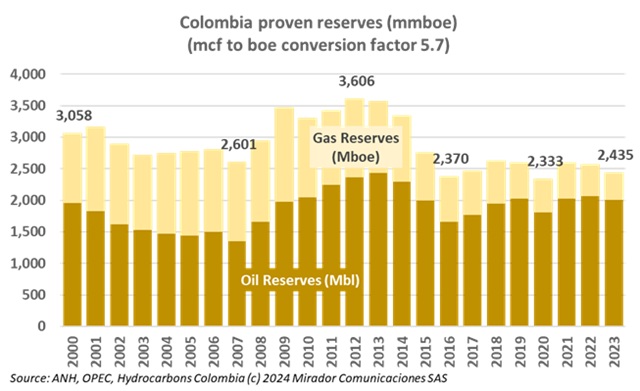Ecopetrol (NYSE: EC) revealed to the Constitutional Court that illegal groups are stealing up to 2,000bd in Catatumbo, Norte de Santander.
US President Donald Trump has taken one of the most decisive actions yet against Nicolás Maduro’s regime, revoking key oil licenses that had been granted under Joe Biden’s administration.
GeoPark Limited reported its reserves in 2024 with positive results thanks to its fracking project in Argentina.

President Gustavo Petro recently spoke to the Colombian tourism association, ANATO, and he told them that tourism now brought more dollars to the country than coal exports. Given the president’s predilection for exaggeration, we thought we should check his figures. He is probably right about the numbers but his explanation is off (we think).
As soon as Colombia’s gas tariff crisis erupted, the Energy and Gas Regulatory Commission (CREG) issued Resolution 102 015, aimed at providing flexibility in contracts between producers and marketers starting in June 2025.
Ricardo Roa, CEO of Ecopetrol, recently confirmed that the company will proceed with the extension of its fracking contract with Occidental Petroleum (Oxy) in the Permian Basin.
The resignation of Andrés Camacho as Colombia’s Minister of Mines and Energy (MinEnergia) marks another shift in the administration of President Gustavo Petro.

After a year and a half in office, Andrés Camacho is stepping down as Colombia’s Minister of Mines and Energy (MinEnergia), leaving behind a complex landscape.
Since taking office, President Gustavo Petro has repeatedly called for Ecopetrol (NYSE: EC) to transition toward renewable energy.
Tomás González, former Minister of Mines and Energy and director of the Regional Center for Energy Studies (CREE) raised concerns about the future of natural gas supply in Colombia.